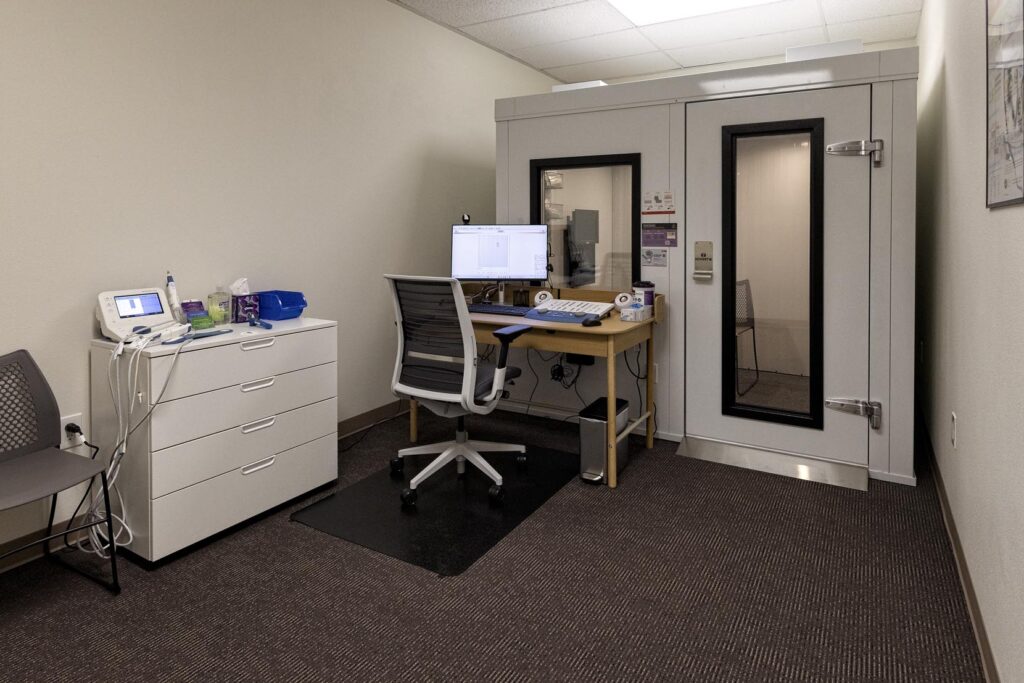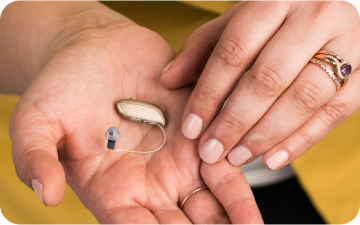
Link Audiology has audiologists providing hearing tests in Silverdale, WA, Vashon, WA, and University Place, WA.
You might wonder “What will my hearing test cost?” when scheduling your appointment. And while it would be great to have a nice, simple answer, it really depends on a few things. We might modify the testing that we do because of your medical history. Or we might do a different kind of test for a pediatric appointment. Just like when you go to your physician’s office, we bill codes to your insurance indicating what we did during the appointment. Each of those codes corresponds with a different test. And your insurance has agreed to pay a certain amount for each of those billed codes, which is the contracted rate or “maximum allowable.” But that might not be your out-of-pocket cost.
What Is My Out-Of-Pocket Cost?
Your insurance probably has a few things about out-of-pocket costs described in your benefits summary. You’ll have some monthly premium – the price you pay for maintaining insurance. But you might also have a deductible, copay, or coinsurance. And these will determine the hearing test cost to you.
What Is a Deductible?
A deductible is the money that you pay out-of-pocket before your insurance starts to cover anything. It resets every year, so if you haven’t met it this year then you will have to pay it again. When we bill your insurance, they will discount our usual rates to the contracted rates before applying the total to your deductible.
What Is a Copay?
A copay is a flat rate that you pay out-of-pocket for each medical appointment. This is paid regardless of what tests are done. Your copay usually does not count toward meeting your deductible. But it does apply to your maximum out-of-pocket. So it does not change regardless of your hearing test cost.
What Is a Coinsurance?
A coinsurance is some percentage of the total bill that you share with your insurance once you’ve met your deductible. For example, if you have 20% coinsurance, then your insurance covers 80% of the contracted rate after you meet your deductible and you are responsible for the remaining 20%. Once you meet your maximum out-of-pocket, this will change and your insurance will pay the full amount.
What Is a Maximum Out-Of-Pocket?
This is the most that you can pay out-of-pocket in any year before your insurance covers 100% of the contracted rates. So, if you’ve already paid this amount for other doctor appointments, your hearing test cost will be zero. This is assuming you are only seeing us for covered services. Covered services are different for each insurance plan and are specified in your benefits summary.
An Example…
Let’s say you have a $2500 annual deductible, $10,000 maximum out-of-pocket, and 20% coinsurance. You already went to the doctor several times earlier this year and have paid a total of $2450 in medical bills. You see us and we do a few different tests with a total hearing test cost of $200. But your insurance discounts that to the contracted rates, which total $130. The first $50 of that would go toward meeting your deductible ($2450 + $50 = $2500). That leaves $80 remaining. Since you’ve met your deductible, but have not met your maximum out-of-pocket, your insurance will cover their portion of the claim (80%) and you’re responsible for the coinsurance (20%). So, your insurance will pay $64 and you will receive a bill for $16.
How Is My Portion Calculated?
We submit a claim to your insurance after your appointment. Usually within 30 days, your insurance will issue an explanation of benefits (EOB). They will send one to you and one to us. In the EOB, they will break down the claim according to how much they were billed, how much they discounted each item, how much applies to your deductible, how much they are paying us, and how much you’re responsible for paying. Our biller reviews the EOB and sends you a bill for the amount indicated by your insurance.
How Much Does a Hearing Test Cost Without Insurance?
We use a thorough process to determine our prices for each test. First, we check the Medicare rates for each procedure when available. CMS has a formula that they use to figure out what they will pay, which is determined using a number of different factors like the cost of the equipment, the time typically spent, the level of education needed, and regional cost adjustments. But we don’t just use their rates to set our own.
We also review our hourly break-even rate annually to see how much money we need to collect each hour, on average, to keep our business open. We then apply a 30% markup to that rate to keep us profitable. And we multiply the typical time spent for each procedure by that rate to figure out what we need to make. We then compare those rates to the Medicare rates to make sure we’re charging a fair amount.
As of the beginning of 2022, we charge the following rates for some common CPT codes. These rates are subject to review and adjustments may apply.
- 92557: Comprehensive audiometry: $150
- 92567: Tympanometry: $33.33
- 92588: Comprehensive otoacoustic emissions: $83.33
- 92550: Tympanometry with acoustic reflexes: $50
- 92579: Visual Reinforcement Audiometry: $200
- 92582: Conditioning Play Audiometry: $150
- 92626: Cochlear Implant Evaluation (1st hour): $295
Can You Predict How Much My Insurance Will Cover?
Yes, to an extent. We can submit to your insurance for prior authorization before you come to your appointment. And many times, we do just that. However, even a prior authorization is not a guarantee of payment from your insurance company. So, while we do our best to try and figure this out for you ahead of time, we don’t know for sure until we bill your insurance and receive an EOB.
Link Audiology connects you to expert audiologists in University Place, WA, Vashon, WA, and Silverdale, WA.
Contact us today to schedule a hearing test in University Place, WA, or at our other clinics in Silverdale and Vashon, WA.

